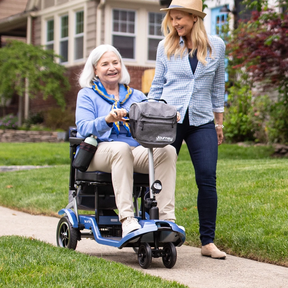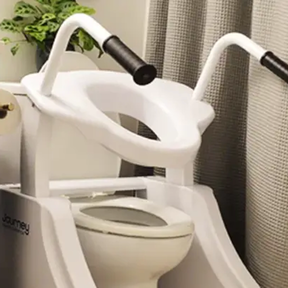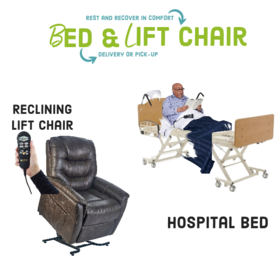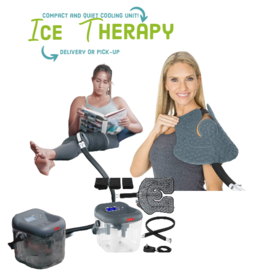Blog Facts about wound healing and care. What are some of the things you should know?
Fri, 02/18/2022 - 18:30
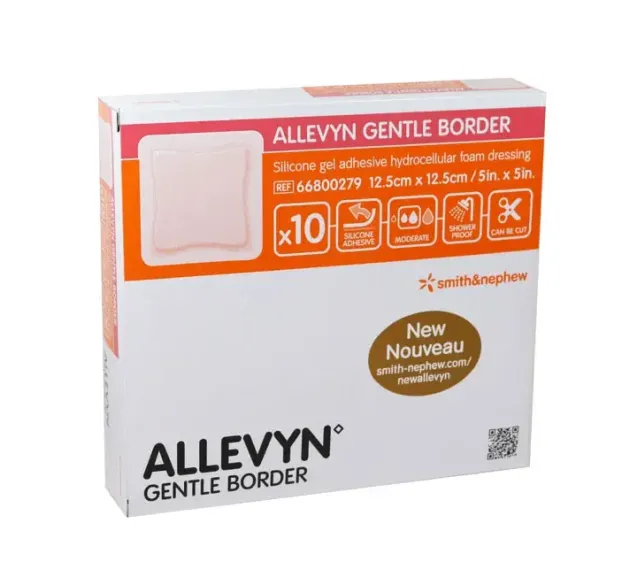
As a caregiver, your goal of post-surgical wound care is to prevent problems and promote speedy wound healing by washing, protecting, and monitoring the skin. But wound healing and care is not as simple as it may seem. As a caregiver, you need to remember specific facts before taking up the responsibility of wound healing and caring for a loved one.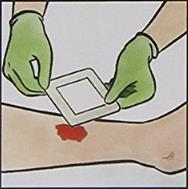
Post-Surgical Wound Healing:
In most situations, with proper care, surgical wounds will heal entirely in a few weeks. But that doesn't apply to everyone. The speed with which the patient recovers is determined by their overall health and the sort of surgery they have had. Large or deep incisions may take 6 to 8 weeks to heal. It may take longer for people who have medical issues or have been prescribed certain medications.
A guide for caregivers on wound healing and care:
There are more than a few things to consider if one of your loved ones has had surgery and you will care for them. We understand this could be your first time, and you might feel confused or unaware of the process.
Worry no more, we have got you covered and have gathered some facts about wound healing and care that you should know as a caregiver. Here is what you need to know:
1. Keep the wound clean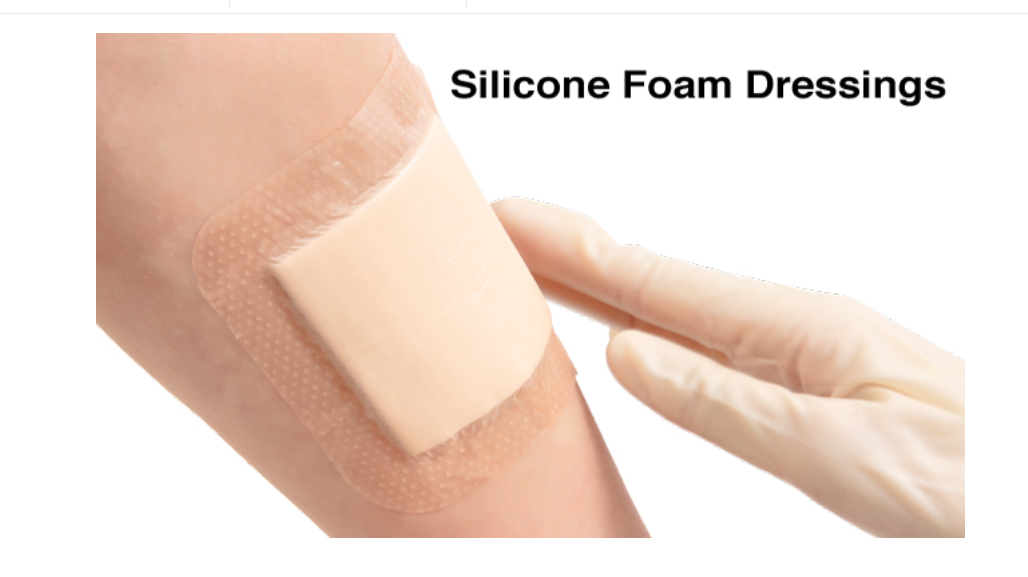
It is essential to keep the wound clean for it to recover and heal. A soft towel or gauze pad can clean the skin around the wound. Soak the towel or gauze in soapy water or a sterilized water and salt solution beforehand. The skin around the wound should next be gently wiped or dabbed.
Skin cleansers, antibacterial soaps, iodine, alcohol, and peroxide should all be avoided. They can harm the skin around the wound and cause it to take longer to heal. Also, don't use any lotion, cream, or herbal medicine without first consulting your doctor.
2. Dressing of wounds:
As a caregiver, you will also be handling Dressing the patient's wound, which is important in the recovery phase.
As per most doctors, as long as the original Dressing is not oozing, it can be left in place for up to two days. You should still consult the doctor for instructions on how often the patient needs a new dressing.
Here is some best wound dressings we recommend using:
- Mepilex post-surgical wound dressings:
Mepilex post-surgical wound dressing is a multi-purpose five-layer bordered foam dressing that comes in various forms and sizes. Dressing can be used to treat a variety of wounds, including pressure ulcers, leg and foot ulcers, and traumatic injuries like surgical wounds and skin tears. Mepilex post-surgical wound dressing is used globally and is a customer favorite to treat a variety of chronic and acute wounds. Mepilex Dressing is conformable and absorbent, allowing it to regulate wound exudate efficiently. Mepilex post-surgical wound dressing is also water-resistant, making it easier to shower without worrying about getting the wound wet.
- Allevyn absorbent foam dressings:
Allevyn absorbent foam dressings are perfect for malignant wounds, surgical wounds, pressure ulcers, diabetic foot ulcers, leg ulcers, first and second-degree burns, and skin tears. Allevyn absorbent foam dressings can be used to treat infected wounds treated according to local clinical procedures. A whole range of dressings available in Allevyn dressings can be chosen as per the situation. Allevyn absorbent foam dressings are known for their leakage performance and fluid retention. According to several pieces of research, Allevyn absorbent foam dressings have been found to retain more fluid than other foam dressings.
3. Keep the patient hydrated:
Water is essential for survival and an important contributor to wound healing. Blood rushes to the wound site when the skin is damaged, bringing oxygen and other nutrients. If a person is dehydrated when this is going on, the blood will supply less oxygen. Because dehydration diminishes the padding over bony points, it has been shown that those who are dehydrated are more vulnerable to developing pressure ulcers. Reduced hydration also deprives injured tissues of the nutrients they require to heal.
Hence as a caregiver keeping the patient hydrated after the surgery will assist you in getting their wounds healed quicker.
4. Eating energy nutrient food:
Another key fact you should know about speedy wound healing is ensuring healthy eating. Yes, we understand that the patient might have been eating less since the surgery, but providing the body with much-needed energy is important to help it heal itself. It should be more about quality than quantity by the way.
Chicken and eggs are high in protein, which benefits the healing process. Fruits include vitamin C, which has also been demonstrated to aid healing. Iron and B12-rich foods, such as fish and eggs, aid in forming new blood cells. Fiber and probiotics strengthen the immune system, allowing it to fight infection more effectively. Salt-containing sports drinks should be avoided since sodium causes the body to retain water, which is a key reason for swelling in wounds and the lower body. Sugary foods should also be avoided since they disrupt the body's balance and suppress the immune system.
5. Make the patient quit smoking:
This could not be the case with everyone, but as a caregiver, if the patient you are caring for smokes, make them quit it ASAP! Smoking affects a patient's immune system and can cause healing to be delayed, increasing the risk of infection at the area of the wound. Even one cigarette reduces the body's ability to deliver essential nutrients for post-surgery healing.
6. Rest, rest, and rest:
To ensure speedy healing after surgery, you should also confirm if the patient is getting enough sleep. They might get bored very soon and want to go to work, don't let them at least not without their doctor's permission. It is good to get some walks once in a while as it helps in good blood circulation within the body but sleep should not be compromised. After surgery, the patient must get 8 plus hours of sleep daily.
Conclusion - Facts about wound healing and care what should I know as a caregiver?
Surgeries, both major and minor, change the lifestyle completely, and on top of that, they also affect the following weeks. As a caregiver, you must now know how to care for the patient for their speedy recovery of wounds and help them achieve their healing goals just in time. Cleaning the damage is important as you cannot afford infections within the area, so choose the best wound dressings. Mepilex post-surgical wound dressing and Allevyn absorbent foam dressings can do your job. Remember, it is time-consuming, but you can recover quickly with proper attention and care.
Thanks for reading this article; we hope it covered all the areas of wound care you needed help with.
And if you need wound care products, Sky Medical Supplies has everyhting you need.
Keywords: mepilex post-surgical wound dressing, eleven absorbent foam dressings.
Tags
- contest
- event
- supplies
- design
- brand
- video
- Compression
- upright walker
- four wheel walker
- rollator
- wheelchair
- Ostomy
- elegantly
- elegantly
- accessibility
- Mobility
- knee walker rental
- knee scooter sales
- knee scooter
- post operative shoe
- anti-embolic stockings
- pain management
- cryotherapy therapy
- hot cold compress
- compression stockings
- lift chair
- wound Care
- air purifier
- fall prevention
- cushion
- oxygen therapy
- cpap, bipap
- Hospital Bed
- Life Aide
- EMS
- recovery
- splint
- knee brace
- Bathroom
- patient lift
- medical supply
- Wound dressings
- Lightweight Wheelchair
- hospital beds for sale
- sky medical supplies rentals
- compression socks
- Tegaderm Dressing
- Adult Diapers
- Rollator Walker
- Bed Wedge Pillow
- Hospital beds
- Patient Lifts and Slings
- Portable Oxygen Concentrator
- Patient Lift Slings
- knee scooter rental
- folding mobility scooter
- mobility scooter
- medical shoes
- raised toilet seat
- hospital beds for rent
- lift chair recliner
- chair lift
- electric wheelchair
- Power Lift Recliners for Elderly
- Senior Walkers
- Bedside Commodes
- whill wheelchair
- compression hose
- Whill Electric Wheelchairs
- Bariatric Wheelchair
- Recliner Chairs with Lift
- Colostomy Bag
- Crutches
- Medical Wedge Pillow
- skin barrier tape
- Post Surgery Ice Machine
- Bedside Commode
- chair lift recliners
- cane holder scooter
- lift chair prices
- drop arm commode
- rollator walker with ergonomic seats
- Hospital Bed Rental
- Wheelchair Tray
- Golden Technologies Lift Chair
- Nova GetGo Junior Rollator
- power lift recliners
- Knee Scooters and Crutches:
- stand up walker for seniors
- stand up walker as seen on TV
- Women's Walking Canes
- Knee Immobilizers
- Bed Wedge Pillow
- Medical Supply Stores
- Sit to Stand Lifts
- Grab Bars
- Compression Gloves
- incontinence bed pads
- Lift Reclining Chair
- Knee Walker Scooters
- Hernia Belt Near You
- Mobility Scooter Stores Near Me
- Folding Knee Walker
- Oxygen Concentrator Store
- Inogen Battery
- Electric Bed Frames
- Placing Lift Chair
Related Posts
Get weekly articles in your inbox on the latest medical supply news, exclusive deals, and helpful health tips.
Mon, 04/04/2022 - 03:04
Tips for living well with bowel and bladder incontinence
Having trouble controlling one's bladder or incontinence issues can be very difficult for people of all ages, affecting their everyday lives.
Mon, 10/24/2022 - 17:23
Can Mobility Scooter Batteries Be Reconditioned? (With Tips)
It is worth paying attention to some factors affecting the batteries to maximize the potential life of the mobility scooter you buy.

